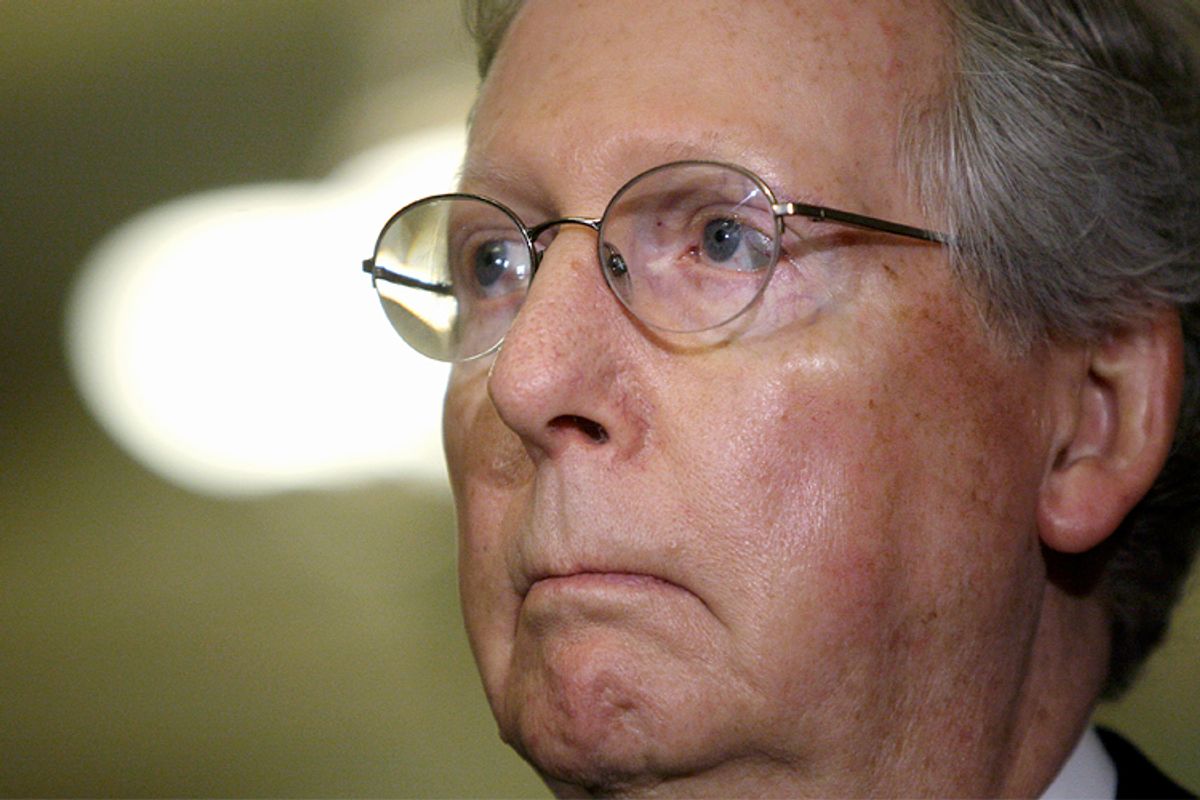The fact that Affordable Care Act enrollments are spiking in states that have functioning exchange websites of their own is great news for the law and for the many thousands of people who will be newly, or better, insured come Jan. 1.
But it also reinforces my sense that Healthcare.gov's failure will create a really remarkable dichotomy.
A number of states that use their own systems, including California, are on track to hit enrollment targets for 2014 because of a sharp increase in November, according to state officials.
"What we are seeing is incredible momentum," said Peter Lee, director of Covered California, the nation's largest state insurance marketplace, which accounted for a third of all enrollments nationally in October. California — which enrolled about 31,000 people in health plans last month — nearly doubled that in the first two weeks of this month.
Several other states, including Connecticut and Kentucky, are outpacing their enrollment estimates, even as states that depend on the federal website lag far behind.
We now have pretty solid evidence that Obama administration officials are correct when they claim that the demand for insurance under the Affordable Care Act is substantial, but trapped behind the malfunctioning website.
We also know that there will be a large, if somewhat balkanized constituency for Affordable Care Act insurance next year no matter what happens with Healthcare.gov.
But this report is just devastating for -- of all people -- Sen. Mitch McConnell, R-Ky.
As minority leader, and an in-cycle candidate with a primary challenger, he has to be leading the vanguard of Affordable Care Act opposition. But as a Kentucky senator, and a candidate with a general election opponent, he will soon be running on a platform of taking insurance away from tens, if not hundreds, of thousands of his own constituents.
Kentucky's exchange -- Kynect -- is the gold standard for state-based exchanges, and has been since day 1. It has perhaps the highest functioning Obamacare marketplace, relative to uninsured population, of any state in the country.
McConnell's response to this has basically been to ignore the private market enrollees and claim that the law's only success story in his state is the Medicaid expansion, because people like free stuff. Really.
"Look, if I went out here on the street today [and said], ‘You guys want free health care?’ I expect you’d have a lot of signups,” he said at a Kentucky press conference recently. “People signing up for something that is free," McConnell said, is the only part of the Obamacare rollout in Kentucky that is actually successful.
That was before the November enrollment surge.
By mid-December will he be able or willing to say the same? McConnell has cited a Kentucky Department of Insurance estimate that 280,000 Kentuckians will lose their current plans because of Obamacare. That figure emerged before Obama announced an administrative measure that will allow insurers to renew canceled plans, and Kentucky regulators have given carriers the green light. But either way, this doesn't help McConnell much past October. If everybody in Kentucky gets to keep their old plans, his talking point -- along with a large font of Affordable Care Act animus -- will dry up. But if only some plans get renewed, the remainder will still be primed consumers, and many of them will become satisfied customers in Kynect.
McConnell's current position -- his position for the past three and a half years -- is that the law "needs to be eliminated and we need to start over."
But before Obamacare, over 17 percent of non-elderly Kentuckians were uninsured. If Obamacare knocks that figure into the single digits next year -- even if it isn't doing much for Tennesseans -- how long will his position hold? His leadership role is about to come into exquisite tension with his responsibility to his own constituents.



Shares